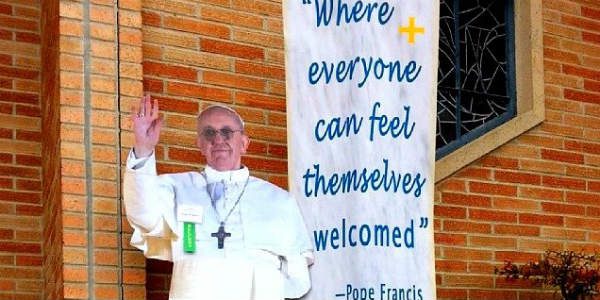My normal beat is pop culture, but I have covered more general Church topics, including the papacy. Back when I was writing about the Church (and other things), for Breitbart.com, Pope Francis released his first encyclical, Lumen Fidei.
Told that the Breitbart readership leaned heavily in the direction of non-religious Libertarians and Southern Evangelicals, I set out to explain the basics of encyclicals to them — by first explaining it to myself.
Here’s the story from July 2013, called “Is the Pope’s New Encyclical an Infallible Document?”
In a word, no. But it is also not the Vatican equivalent of a New York Times op-ed. Nor is it merely a scholarly dissertation, to be read only by theologians, who might write their own scholarly dissertations on it, to be read only by other theologians.
Instead, an encyclical – from the Greek word egkyklios, with kyklos meaning a circle – is a circular letter, sent from the pope to instruct a particular audience, usually bishops of a specific country or to all the bishops of the Roman Catholic world.
In the case of the newest encyclical, “Lumen Fidei” (Latin for “Light of Faith”), released on Friday, July 5, by Pope Francis (but begun by his predecessor, Pope Emeritus Benedict XVI), the intended audience is, as indicated on the first page, “the bishops, priests and deacons, consecrated persons and the lay faithful.”
In short, it’s a letter to every Roman Catholic everywhere, exploring an appropriate subject for the current Year of Faith, declared by Benedict to last from Oct. 11, 2012 (the 50thanniversary of the opening of Vatican II), to Nov. 24, 2013 (the Solemnity of Our Lord Jesus Christ, King of the Universe, or for short, the Solemnity of Christ the King).
But, one might ask, if it’s a letter from the Vicar of Christ to his entire flock, why isn’t it infallible? After all, isn’t the pope infallible all the time anyway? Isn’t that what “papal infallibility” means?
No.
A pope is as capable of sin as any man – as anyone who watched Showtime’s Renaissance Vatican melodrama “The Borgias” is well aware – and his every utterance does not necessarily represent a pronouncement of eternal and binding wisdom (as much as the opinion of one priest, bishop or cardinal, in the Vatican or not, does not automatically speak for the entire Church).
But the pope does occupy a singular place at the very top of the Church hierarchy, and Catholics believe that began at the beginning.














